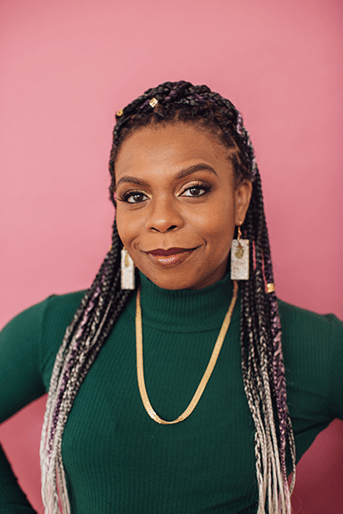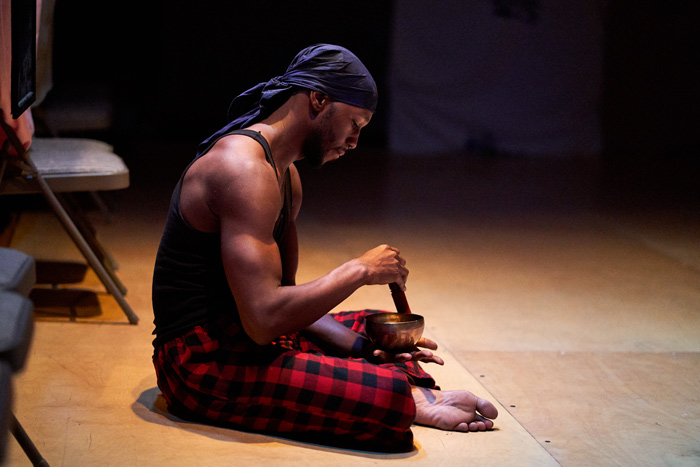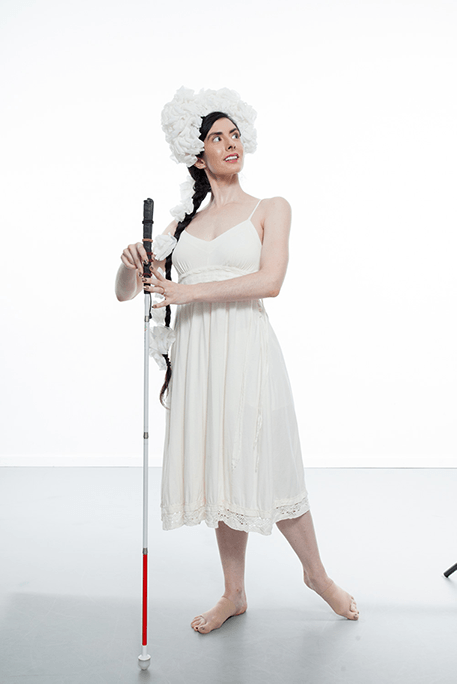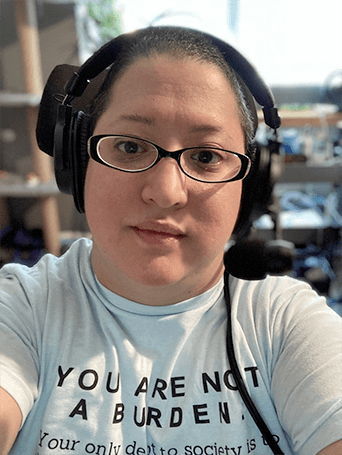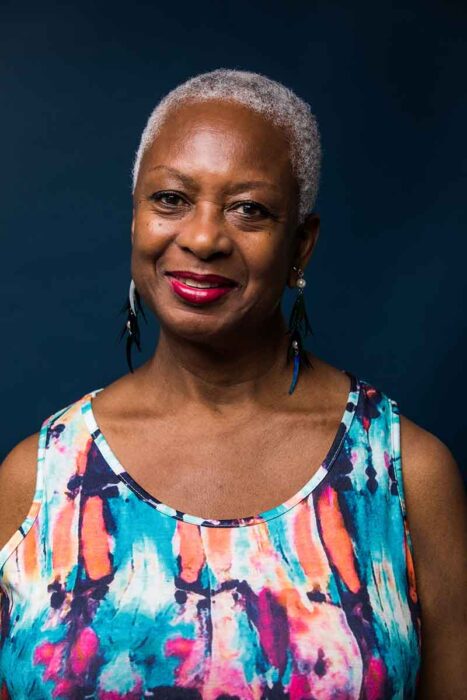*When I refer to America and Americanos in this essay, I am referring to a United States of America context and not the entire Las Americas.
I don’t have a clear history.
“Asegurate que no pierda tu papeles.” “Be sure not to lose your papers” is something my mom used to say about preservation in the United States; a way to prove I was born here– my social security card. That weird beige and blue card that has my 13-year-old signature on it, that card is my papers. That card is proof that I am from here.
I am a 35-year-old woman, and I get nervous EVERYTIME I go through customs. “No need to be nervous. Where will they send you?” asks my supportive, white, cis-male lover, and in all earnesty I can only mutter “Limbo.”
I think less about where they will send me in this situation, though we know that would mean cages. There are currently children in cages in the good’ol USofA. What I really worry about in a situation where my papers might not be enough proof of my Americana-ness, is being put into limbo.
What is Americana-ness? What are American customs? Do Americanós know? It seems so obvious that when arriving at a place one might be introduced to the customs of that place. The customs provide the visitor with the ability to move in and around that place with a sense of context and reference. American customs are not about generosity of context; American customs are about each (white)man for himself. (We have learned that American history is not about context and more about whitewashing.)
A few washed American customs…
Thanksgiving. In essence; yes, more gratitude is always a good thing, but the “peaceful dinner between pilgrims and Indians” that is taught to every American elementary school student has led to a custom of disregarding America’s complex history of thievery, deception and murder. (Indigenous, Native American communities have suffered disproportionately in the global pandemic but are left out of national statistics, American customs 2021.)
Puritanism. Don’t talk about nipples. Don’t even look at nipples. Boys will be boys. Girls should sit with their legs closed, unless they want to be grabbed by the pussy. And yes old white men who can’t even say “menstruation”, will keep control of women and their bodies. (ICE was performing unconsented “surgeries” on women in their facilities, American Customs 2021.)
Bootstraps. What are bootstraps anyway? Working hard in the pursuit of your happiness, is a great approach to life, yes, but the “hard” of that work should not be determined by the money of your ancestors, or better yet, the “hard” of that work should not be determined by where you come from. “Pull yourself up by your bootstraps” perpetuates the American custom of ignoring the labor of the bodies that make someone else’s profit. (“Undocumented” immigrants are performing essential jobs securing the United State’s food supply during a pandemic but they have no health, monetary or legal protections, American Customs 2021.)
I was talking about limbo… If you have limited resources and are unconnected [no $$$$], being put into limbo means someone/something else controls time and space. Autonomy lost to the whims of another’s power. Limbo, like the game, causes the player to bend over backward, just to take one foot forward.
I was raised in the space between limbo and liminal.
My upbringing is a collection of being Dominican, American, Black, White, and of no clear ancestral tree. Liminal is something I have felt my entire life. Everyday. In every place. A bit of this. A bit of that. For me, the liminal is my family’s celebrations of two independence days, and me feeling no kinship for either country. Liminal is a place of nowhere– and everywhere– at the same time. Existing in the liminal can be at once performance and authenticity.
But limbo was always around. It was my alcoholic aunt who always peed on herself at parties. It was Biembo, the man who had no clear familial relationship to us. He drifted in and out of our lives, always welcome if he didn’t show up high. My uncles, the livery Taxi drivers who worked for tips. There was always adult talk of buying items on layaway, and getting a better job than ‘la factoria,’ and so many diligencias about things I didn’t understand. Always, there was “vamo a ver,” because “we’ll see,” is the best you can do when a promise can’t be made.
Limbo is the promise-less land.
When my mom came to America at age 12, she almost immediately started working in a factory. (Because of her “hard” work, and credit debt: my mom is the epitome of the American dream. She (and my dad) worked multiple jobs to be sure they could pay all the bills and feed their family (including and beyond me and my siblings). My mom is Americana y Dominicana but she (and many like her, including my dad) know first hand the displacement of limbo. Leaving important things like agency and autonomy behind, because when someone/something controls your time and space, things like agency and autonomy can get you in trouble.
When I was a young girl, my mom would look at me and claim my Americana-ness both proudly and with subtle disdain. To her, Americanas wear their shorts too short, they are loose and they talk way too much. I am very much an Americana: my shorts are short, I avoid bras as much as possible, and I believe my pursuit of happiness is a birthright. I also drop my s-es when I speak spanish. Soy Americana y Dominicana. Liminal.
In liminal-ness, the agency is not futile despite it seeming so.
I think it’s important to note that power is necessary for support, growth, and evolution; but so often power is abused, or it is misunderstood as a tool for control. If someone feels power by controlling someone else’s time and space – they too are most likely being controlled.
Is it worse to be unconscious in the ways we perpetuate the control of other’s time and space, or to do it because that’s the way the man says it’s done? It is through a benumbed approach to leadership that causes many people to play into the power dynamics of placing others in limbo.
Being in a position of power really requires an ego-lessness, self-awareness–a willingness to adapt, a malleability. How can we, as American people transform and transcend the ego-money-driven democracy that was built to work this way and create a new set of power dynamics?
Side note, but in relation to ego/power: I am thinking about the ways ego and power dynamics have affected me as a dancer and what I have observed in our field. How often as a dancer have you been placed in limbo: waiting for details on that contract, your labor ignored or unacknowledged, delays in payment, transparency lost because you aren’t deemed important enough for information to be shared with?
I am in awe and admiration of the work Dance Artist’s National Collective has done and continues to do to empower freelancers to collectively consider the ways we can organize to develop safe, equitable and sustainable working conditions. If we continue to approach our careers with “hunger” then we perpetuate the idea that there is not enough; placing ourselves and others in limbo.
Ay ombé.
It gets complicated quickly and it does not have to be. Many Americans believe socialism is a bad word, and that caring for others—anyone different from you—is a sign of weakness; we have arrived to American Customs, and it’s time for adaptation.
The liminal exists as an experience, a way of moving through the world—undefined, but obvious to anyone who experiences it. The liminal is a way of finding and defining one’s fluid and adaptable understanding of individual identity.
Limbo is objectification. Limbo is someone else’s definition of identity, capacity and “rights” supplanted onto others without care, equity, or exchange.
To be put into limbo means: losing history para conseguir papeles— exactly what my parents have done for me. I should know better. I should walk through customs like a proud Americana. I should brand that passport like a gold watch given to an employee after 35 years of good service– instead of actually giving them a sizable raise. That gold watch is as American as my blue passport. So American.
Sadly, I’ve seen people put into limbo. I grew up watching people do this dance. Limbo is having your time and space directly controlled by something/someone else.
Being Americana, I know I have a voice. I believe in individuality and, though America is a mess, I believe we have the potential to be great as defined by ALL the people who live here and work hard here. Great as defined by all our voices. Our interests. Our pursuit of happiness, both independently and together.
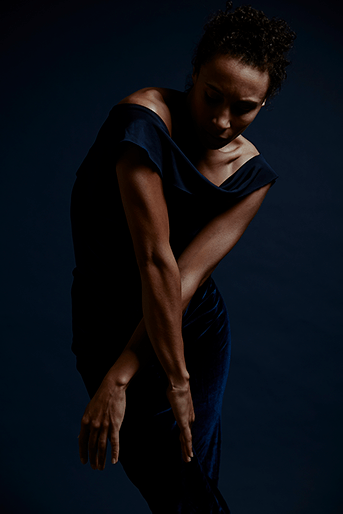
Native New Yorker and Dominican American dancer, choreographer and educator Marielis Garcia holds a BFA in Dance, and an MFA in Digital and Interdisciplinary Art Practice. Marielis is currently an Artist in Residence at University of Maryland, School of Theater Dance and Performance Studies, and is developing a work for Alvin Ailey/Fordham School as part of the New Directions Choreography Lab. She was UNCSA Choreographic Fellow in 2017 and has taught classes for Rutgers University and University of North Carolina Greensboro. Marielis produces collaborative works through MG DanceArts, which has been presented at Aaron Davis Hall and Judson Memorial Church, among others. Possibilities of Dialogue, her ongoing collaboration with David Norsworthy, was awarded Kaatsbaan and Dance Initiative residencies and debuted at Toronto’s North York Arts Center in 2019. Marielis has danced with Brian Brooks, Stefanie Batten Bland, Peter Kyle, and Helen Simoneau and frequently collaborates with visual artist Madeline Hollander.
Photo of Marielis Garcia by Whitney Browne

